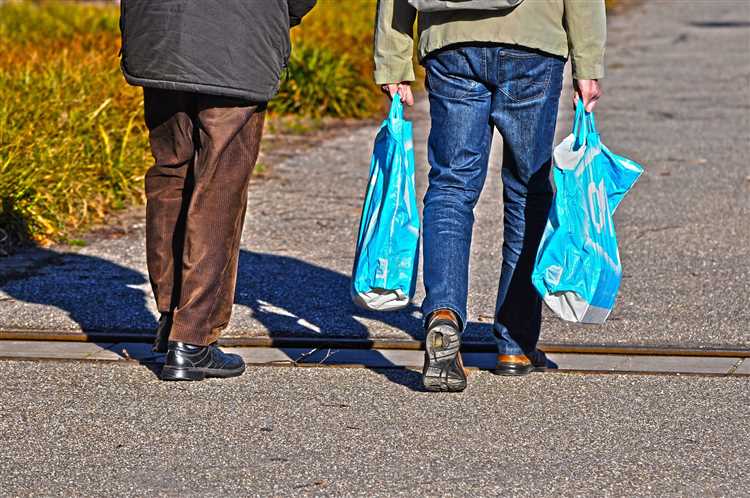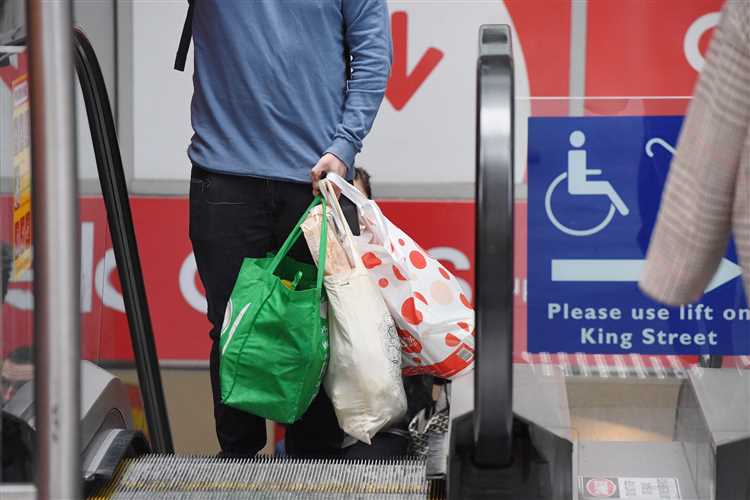Plastic bags have become an integral part of our daily lives, but their convenience comes at a significant cost to the environment. As the world grapples with the urgent need to address the issue of plastic pollution, the question arises: is banning plastic bags justified? This article aims to delve into the environmental and economic impact of these bags, shedding light on the reasons behind the growing calls for their prohibition.
Plastic bags have long been a symbol of our throwaway culture, with a staggering amount ending up in landfills and oceans each year. These bags, made from non-biodegradable materials, take hundreds of years to decompose, releasing harmful toxins in the process. As they break down into microplastics, they enter the food chain, threatening marine life and ultimately posing a risk to human health.
Furthermore, the production of plastic bags requires large amounts of fossil fuels, contributing to greenhouse gas emissions and exacerbating climate change. This has led to a heightened awareness of the need to reduce our reliance on single-use plastics, with many countries and cities implementing measures to discourage their use. One of the most controversial measures is the outright ban on plastic bags.
While opponents argue that a ban on plastic bags would inconvenience consumers and harm businesses, proponents argue that the long-term benefits outweigh the short-term drawbacks. Studies have shown that when plastic bags are banned, consumers tend to switch to reusable alternatives, such as cloth or paper bags, resulting in a significant reduction in plastic waste. This, in turn, can lead to cleaner oceans and a healthier environment for future generations.
- Pros of Banning Plastic Bags
- Positive Environmental Impact
- Encourages Sustainable Alternatives
- Protects Wildlife
- Reduction of Pollution
- Protection of Wildlife
- 1. Marine Life
- 2. Land Animals
- 3. Habitat Destruction
- Q&A:
- What are the environmental impacts of using plastic bags?
- How do plastic bags affect marine life?
- What are the economic impacts of banning plastic bags?
- Are there any alternatives to plastic bags?
Pros of Banning Plastic Bags

The decision to ban plastic bags is backed by several compelling reasons. Here are some of the key advantages:
- Environmental Protection: Plastic bags take hundreds of years to decompose, contributing to pollution and causing harm to wildlife. By banning plastic bags, we reduce the amount of plastic waste that ends up in landfills and ecosystems, helping to protect our environment.
- Conservation of Resources: The production of plastic bags requires significant amounts of fossil fuels and energy. By banning plastic bags, we can conserve these valuable resources and reduce our carbon footprint.
- Promotion of Reusable Alternatives: Banning plastic bags encourages people to use reusable options like cloth bags or paper bags. These alternatives are more durable and sustainable, leading to a decreased demand for single-use plastics.
- Cost Savings: Plastic bags may seem cheap, but their true cost is often borne by society through waste management and environmental cleanup efforts. By banning plastic bags, we can save money on these expenses and allocate resources to more pressing needs.
- Positive Image: Implementing a plastic bag ban demonstrates a commitment to environmental sustainability, which can enhance a community’s reputation and attract eco-conscious tourists and businesses.
- Health Benefits: Plastic bags can contain harmful chemicals that can leach into food and beverages. By banning plastic bags, we can help protect public health and ensure the safety of consumables.
Overall, banning plastic bags has numerous advantages that contribute to a healthier environment, conservation of resources, and improved public health. It is a proactive step towards reducing plastic waste and promoting sustainable practices.
Positive Environmental Impact
The banning of plastic bags has numerous positive environmental impacts. One of the main benefits is the reduction in plastic pollution. Plastic bags are a significant contributor to marine pollution, with millions of bags ending up in oceans and waterways each year. These bags take centuries to break down, causing harm to marine life and ecosystems. By banning plastic bags, we can significantly decrease the amount of plastic waste that enters our marine environments, reducing the threat to marine species.
Furthermore, banning plastic bags can help reduce the consumption of fossil fuels. The production of plastic bags requires the extraction and processing of petroleum, a non-renewable resource. By reducing the demand for plastic bags, we can decrease our reliance on fossil fuels and minimize the associated greenhouse gas emissions.
Encourages Sustainable Alternatives
The ban on plastic bags also promotes the use of sustainable alternatives. For instance, reusable cloth bags and paper bags are environmentally friendly options that can be used multiple times. These alternatives are biodegradable and have a significantly lower environmental impact compared to plastic bags. By encouraging the use of these sustainable alternatives, we can reduce the overall demand for single-use plastic bags and foster a shift towards more environmentally conscious practices.
Protects Wildlife
Banning plastic bags can also help protect wildlife. Many animals mistake plastic bags for food, leading to ingestion and, in some cases, death. Birds, turtles, and marine mammals are particularly vulnerable to mistaking plastic bags for prey. By eliminating plastic bags from our environment, we can reduce the risk of harm to wildlife and contribute to the preservation of biodiversity.
In conclusion, the banning of plastic bags has a positive environmental impact by reducing plastic pollution, reducing the consumption of fossil fuels, promoting sustainable alternatives, and protecting wildlife. These benefits make the case for implementing and supporting policies that aim to ban plastic bags and encourage responsible and sustainable practices.
Reduction of Pollution
One of the main justifications for banning plastic bags is the significant reduction in pollution that can be achieved. Plastic bags are a major contributor to environmental pollution, particularly in bodies of water. These bags can take hundreds of years to decompose, and during that time, they can release harmful chemicals into the environment.
By banning plastic bags, governments and communities can greatly decrease the amount of plastic waste that ends up in landfills and oceans. This reduction in plastic pollution has multiple benefits. Firstly, it helps to protect wildlife, as animals can mistake plastic bags for food or become entangled in them. Plastic pollution can cause significant harm to marine life and ecosystems.
Additionally, reducing plastic bag usage can lead to cleaner streets and landscapes. Plastic bags are often seen littering streets, parks, and other public areas. They can be an eyesore and negatively impact the overall appearance and cleanliness of a city or town.
The reduction of pollution from plastic bags also has a positive impact on human health. When plastic bags break down, they release microplastics into the environment, which can make their way into the food chain. Consuming microplastics has been linked to various health issues, including hormonal disruptions and digestive problems. By reducing plastic bag usage, the risk of human exposure to these harmful microplastics is minimized.
- Plastic bags contribute to pollution in bodies of water.
- They take a long time to decompose and release harmful chemicals in the process.
- Banning plastic bags helps protect wildlife by reducing plastic pollution.
- It leads to cleaner streets and landscapes.
- Reduction of pollution from plastic bags has a positive impact on human health by minimizing the risk of exposure to microplastics.
In conclusion, the reduction of pollution is a significant argument for the banning of plastic bags. The environmental and health risks associated with plastic bag usage make it necessary to find alternative solutions to carry out daily tasks.
Protection of Wildlife
Plastic bags have a significant negative impact on wildlife, making the ban on plastic bags a justified measure to protect animals and their habitats. Here are some reasons why banning plastic bags is essential for wildlife conservation:
1. Marine Life
Plastic bags, when discarded improperly, often end up in rivers and ultimately make their way to the oceans. Marine animals such as sea turtles, whales, and seabirds mistake plastic bags for food, leading to ingestion and entanglement. Ingesting plastic can cause internal injuries and blockages, leading to starvation and death. By banning plastic bags, we can reduce the risk of harm to these vulnerable marine species.
2. Land Animals

Plastic bags not only affect marine life but also pose a threat to land animals. Wildlife such as birds and mammals may mistake plastic bags for food or use them in their nests. Ingestion of plastic can lead to suffocation or internal injuries, causing severe consequences for these animals. Banning plastic bags can help protect land animals and prevent them from falling victim to plastic pollution.
3. Habitat Destruction

The production and disposal of plastic bags contribute to habitat destruction. Plastic pollution can accumulate in ecosystems, affecting the quality of soil and water in habitats where wildlife depend on for survival. By banning plastic bags, we can mitigate habitat degradation and support the preservation of natural ecosystems for the benefit of wildlife.
Overall, a ban on plastic bags plays a crucial role in safeguarding wildlife and their habitats. It reduces the risk of harm to marine life, land animals, and helps preserve habitats from pollution and destruction. Implementing alternative eco-friendly bag options can ensure a safer environment for wildlife and contribute to the long-term sustainability of our ecosystem.
Q&A:
What are the environmental impacts of using plastic bags?
Plastic bags have significant environmental impacts. They are made from non-renewable resources like oil, and their production contributes to air and water pollution. Plastic bags are not biodegradable and can take hundreds of years to decompose, leading to significant landfill waste. They are often not properly disposed of and end up as litter in oceans and forests, where they harm wildlife and ecosystems.
How do plastic bags affect marine life?
Plastic bags pose a significant threat to marine life. When they end up in oceans, marine animals mistake them for food and ingest them, leading to injury and death. The ingested plastic can block the animals’ digestive system and cause starvation. Additionally, plastic bags often entangle marine animals, leading to drowning or hindered movement. The accumulation of plastic waste in the ocean also disrupts the entire marine ecosystem.
What are the economic impacts of banning plastic bags?
Banning plastic bags can have both positive and negative economic impacts. On one hand, the ban can lead to job losses in the plastic bag manufacturing industry. However, it can also create new jobs in industries that produce reusable bags or alternative packaging options. Additionally, the ban reduces the costs of waste management and litter cleanup, as well as the environmental damage caused by plastic bags. Overall, the long-term economic benefits of the ban usually outweigh the initial costs.
Are there any alternatives to plastic bags?
Yes, there are many alternatives to plastic bags. Some popular alternatives include reusable bags made from canvas, cotton, or jute, which can be used multiple times and are more durable. Paper bags are another option, but they have their own environmental impacts, as their production consumes more energy and water compared to plastic bags. Some people opt for biodegradable or compostable bags made from plant-based materials, although their effectiveness in reducing environmental harm is still a matter of debate.